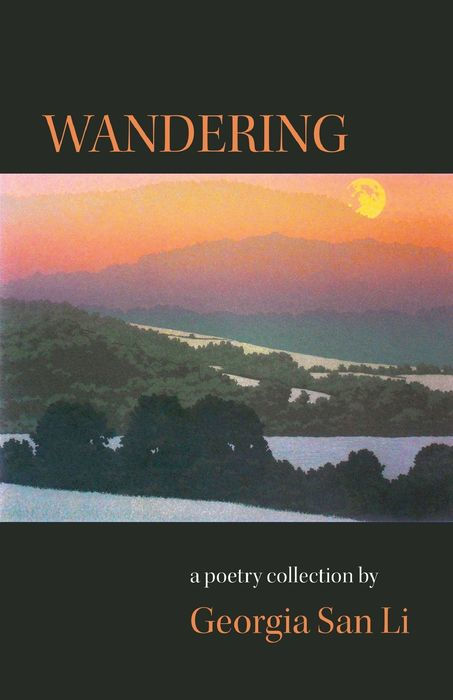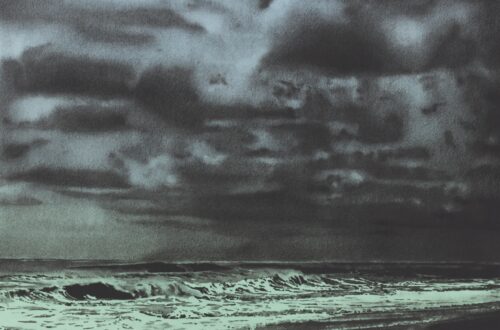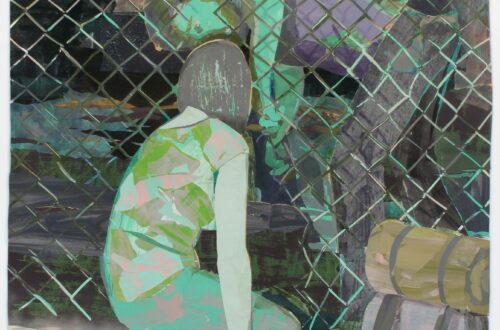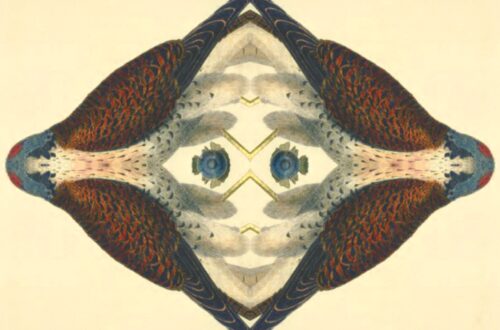
A Review of Georgia San Li’s “Wandering”
by LIT poetry editors, Rebecca Endres and Richard Berwind
Wherever you look in Georgia San Li’s “Wandering,” you are bound to find people in that restless stage of anticipation, traveling and on the cusp of arriving at their next destination. The voices of her poems are so often “alone and surrounded/waiting, to enter somewhere else.” It’s the yearning, the tightness in the chest before crossing that threshold to somewhere else that makes her poems so powerful.
As the title of the book suggests, “Wandering” tackles movement—between past and present, between different generations of family, between the North America, Europe and Asia—and San Li’s ceaseless energy powers the compact collection along, stunning the reader with its haunting lyricism and meandering cultural references. She excels most at honing in and finding beauty in mundane objects to act as her focal points. Then, just as the reader settles into the comfort of a small, concrete detail, the poem shifts out, prodding at the English language and its capacity to draw us together…as well as its limitations and the bridges that even words cannot cross.
Our travels take us across time as often as they take us up on planes or aboard ships: in her poem “Wandering,” San Li guides us through her childhood home, memories intimate as she visualizes “rounded pebbles and feather dust plumes/of magic.” We frequently catch glimpses of her brothers fishing in Korea, recollections so clear one can smell the brine in the water, feel the cool splashes of water as the boys in San Li’s memories tramp through stanzas. Is the poet’s voice the most confident in these memories because she feels closest to her true self when she looks back at her time there, or is it simply because she was younger, with a child’s sense of simplicity and belonging? It’s striking, her wariness of the future: “what will I write if I live to next year.”
Dickensian in her love of dashes and distaste for periods, San Li’s text flows like a stream, scintillating in the sunlight at times, obscuring the truth beneath the surface. The poems that shine the brightest are those that linger in the melancholy of something lost, something replaced, like in “Forkpoints:”
she sets the table, and knows not what to call this
American alien mixture of no lilacs, no
tubers, with no redemptions in
their eyes.
The woman in the poem has family, she has food, and yet it is the change that haunts her, the displacement that defines the present as the past refuses to let go. This imagery of a hopefulness lost rears itself again in “Rank Fruits & Lamentations:”
new summer peaches and blushing pears arranged to face the soggy dawn,
soaking in oils and rot of what these fruits will
become, kicked, and melted into the curb
of the tarry pit of our post-historic times—
dissolving, stinking with the last of the onions
If there has been something beautiful here, San Li seems to say, we can only expect it to morph and degrade with time, leaving memories of a better time and an oversewed smell of rot.
With content that spans decades, San Li deftly zooms in to small moments of grief (a death in the family, birds plucking grass to build nests) only to pan out at wider glimpses of the human condition (romance on a college campus, grappling with a loss of cultural identity). Take comfort that while the poems cover a great deal of ground, one never travels alone in Wandering. Herman Melville and the sailors traveling in the Pequot, Virginia Woolf, John Milton, even Charlie Brown makes an appearance. Despite company from literary figures, friends, and pop culture, San Li’s poems are constantly returning to the ache of loneliness. Perhaps that’s the very reason for the restlessness of this poignant collection: Who hasn’t sat in a party or conference and been struck by a feeling of distance? So Wandering invites us to sigh, tuning out of the present conversation and to drift back into another soothing, bittersweet memory.
Wandering was published in January of 2024 and is available from Finishing Line Press

GEORGIA SAN LI's debut poetry collection "Wandering" was a Minerva Rising finalist. She is currently at work on poetry and Untitled: a portrait from the tarmac, a novel. Her poetry appears or is forthcoming in journals including Confluence (UK), The Glacier, La Piccioletta Barca, Litro (UK), SWWIM, The Missouri Review and Willow Springs, and her work was shortlisted for the 2023 Oxford Poetry Prize. She has worked on assignment in cities including London, Tunis, Denver, Mexico City, Sao Paulo, Paris, Wilhelmshaven, and Tokyo. She currently lives and works in New England.



